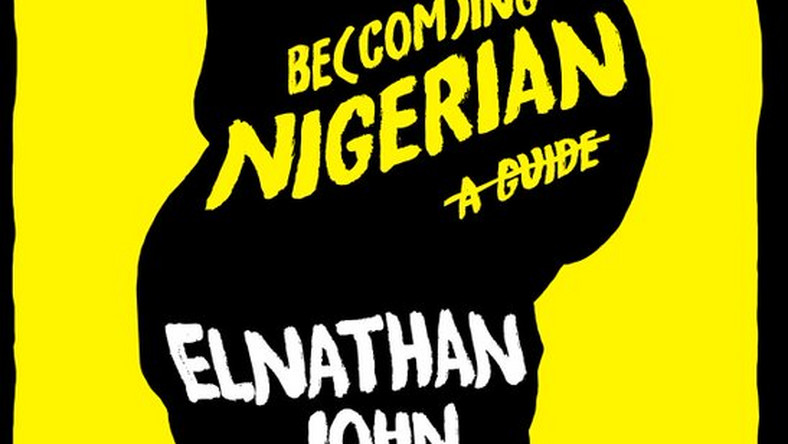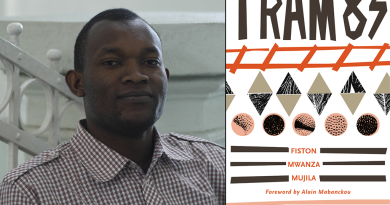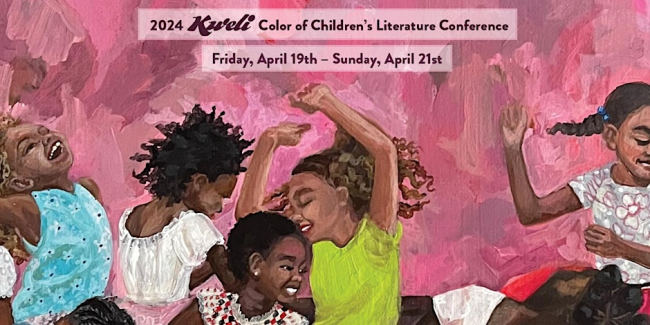Book Review / Elnathan John’s Becoming Nigerian—A Guide
What does it mean to be(come) Nigerian?
Elnathan John: Never, ever explain satire (calmly).
I: I won’t. I can’t. I just want to give an answer to the question.
To be Nigerian is to be a hustler, and Elnathan teaches us in his latest book, “Becoming Nigerian: A Guide”.
*
I have made a whole lot of mistakes in my life, and buying bad books has always been part of them; but picking up Elnathan John’s latest book “Becoming Nigerian: A Guide” (published by Cassava Republic earlier this year) from one of the shelves stacked with beautiful and tempting books, at Ouida House, is one of the best decisions I have made. From the yellow and black cover of the book, which makes me imagine Lagos and its danfos, though the yellow is not the too-ripe mango yellow, with the pregnant police man standing like a tree, and the loud mosques and blaring churches on the back cover—“Becoming Nigerian” is a delight.
While the book is a guide, a kind of manual on what it means to be Nigerian [‘at home and abroad, or on your way to hell or heaven’], it is also, for me, a letter to a friend, from a friend who lives under the same conditions as the friend he/she/x is writing to. This is what makes “Becoming Nigerian: A Guide” a book worthy of reading. But there is more behind six than just seven.
*
The book begins “IN THE BEGINNING…”, with the colonialist, and leads us to the now. In the first chapter, there are eight Bible-like chapters: chapter 1 tells of the beginning of Nigeria, in a Genesis-1 way (how ‘2[T]he British said: “Let there be Nigeria. And there was Nigeria.”’); and he takes us on until we get to a retelling of The Beatitude: ‘Blessed are [those who steal from] the poor in spirit, for theirs is the kingdom of political rebirth.’ (Chapter 7, verse 1). He ends this chapter in Chapter 8 with what I call “Aliko’s Prayer.”
Elnathan writes: ‘1The benevolent dictator gathered all his disciples and taught them a new prayer. He said,
2You must pray then this way:
3Our father, who art Aliko, hallowed be thy wealth…’
In that very first chapter Elnathan summarizes all that the book is about: Nigeria, a country where politics and religion and everything else is a hustle; and this is basically because Nigeria began as a hustle, the white man’s hustle. But then Elnathan points no finger, though his finger is everywhere.
In the book, the Spiritual and the Temporal and the Political and Social and Legal are one, too: they are hustle.
Even Love is a hustle. It is just as political as our dirty politics: there are ways to play your cards, and there are ways not to. As the man, you have to be very protective of your woman; as the woman, ‘never ask who his female friends are’. The man must never do something as stupid as go to the kitchen; but the woman must understand that cooking for her man is magical while the so-called romantic words is a waste of time. With that advise, Elnathan swears God will bless your ‘romantic hustle.’
While Elnathan himself claims that there is a gender-bias in the romantic or husband-housewife politics, he makes it clear that most Nigerian women are comfortable with the way of things—which is one thing we don’t talk/write about when discussing issues of masculinity/feminism in Nigeria. Are some women comfortable with the status quo? Yes. Because: “[i]f you fail to [be over-protective], even she will begin to doubt your love,” he writes.
In very subtle ways, he condemns these things and those perpetrating them; but still showing, rather than telling, that lawlessness in Nigeria is like blood. That, somehow, in this country: survival actually depends on how “smart” (and that means different things to different people) you can be to get what you want. The good mechanic must know how to steal without really stealing; the police man can start out thin and flat-bellied but will soon find out how bad a body like that looks; Pastor should know very well how to play politics in his church, even when it relates to his wife packing out because she caught him planting his seeds in other soils!
If Elnathan sees those as out-of-the-normal, fine; but none of it surprises him, because he knows very well that to be Nigerian is to be ‘out-of-the-normal’, because normalcy does not work in this country. Maybe it is, in fact, for the absence of normalcy in Nigeria that Elnathan himself claims to be ‘in an abusive relationship’ with it (Acknowledgements).
*
Though Elnathan does well at exposing Nigeria, to the Nigerian and non-Nigerian, it is not what makes this book a delight; what makes “Becoming Nigerian: A Guide” a delight is its language. Unlike many other books about Nigeria, this one is Nigerian to its core. Written in Nigeria English and a sprinkle of pidgin (there is even a chapter for ‘Common Nigerian Phrases and Expressions’), and in the clear voice of our guide, Elnathan, you will not be able to put it down—though, if you are the pastor or politician or mechanic or Nigerian/non-Nigerian his finger is pointed at, you might fling it somewhere, or even burn it. But: to put it down will be impossible.
*
Yes. Reading “Becoming Nigerian” reminded me very much of my own Nigerian-ness, of what I really am: a hustler.
I: Even your book is a hustle, right?
Elnathan: I am coming.





